Alice Adams (1935)
“I don’t know why he likes me; sometimes I’m afraid he wouldn’t if he knew me.”
|
Synopsis: |
|
Genres, Themes, Actors, and Directors:
Response to Peary’s Review: Speaking as a female viewer, I can firmly attest that I don’t find the film any less disturbing than Peary; indeed, it’s nearly as depressing as Hepburn’s notorious downer of a debut film, A Bill of Divorcement (1932). I’m ultimately most in agreement with the assessment provided by DVD Savant, who notes that Alice Adams is “beautifully put together… but raises a number of issues that can’t be easily dismissed” — most specifically the puzzling nature of MacMurray’s attraction to Hepburn. Sure, she’s pretty, but he’s supposedly engaged to his wealthy (and equally pretty) cousin — so what in the world is he doing pursuing Hepburn? We learn absolutely nothing about him — he functions purely as a projection of Hepburn’s fantasies; while it’s clear as day that she’s putting him on, he simply grins at her like a vacuous dolt. Also frustrating is the film’s tendency to shift in tone between poignant social drama and comedy; meanwhile, the utterly unrealistic denouement between Stone and Grapewin — as well as the obviously tacked-on happy ending (deviating from the original novel) — leave one feeling somewhat cheated (though Peary himself claims to “find [the ending] a relief after watching Alice suffer”). With that said, the film has much to recommend it — beginning with Hepburn’s passionately committed, nuanced portrayal as Alice. In his Alternate Oscars, Peary names Hepburn Best Actress of the Year for her work here, and it’s hard to argue with his choice. Although she’s an infuriating protagonist to sympathize with — not to mention frustratingly variable (one moment painfully awkward, the next coyly flirtatious) — Hepburn nonetheless brings her to achingly vulnerable life. Meanwhile, the supporting cast (consisting of many little-known faces) is excellent all around — most notably circus performer Fred Stone as Alice’s sad sack father; Frank Albertson as her wastrel brother (who perfectly embodies the cynical antithesis of Alice’s socially conscientious desperation); and droll Hattie McDaniel (in a “scene-stealing performance”) as Malena. Redeeming Qualities and Moments:
Must See? Categories
Links: |
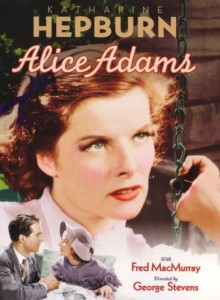
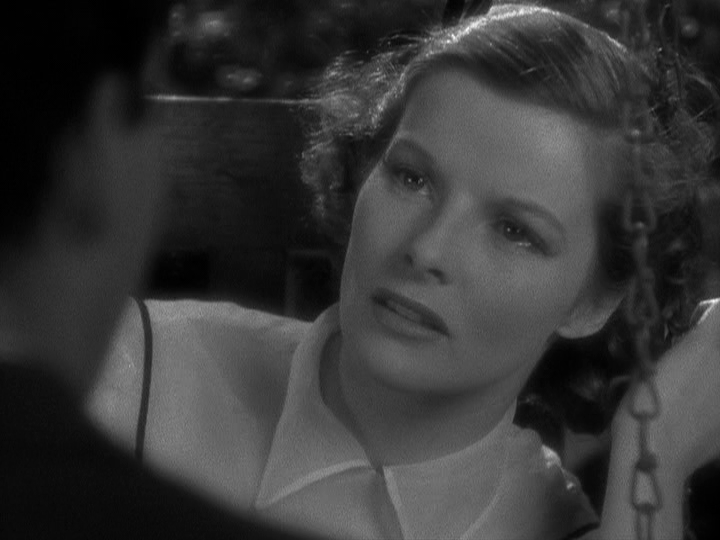
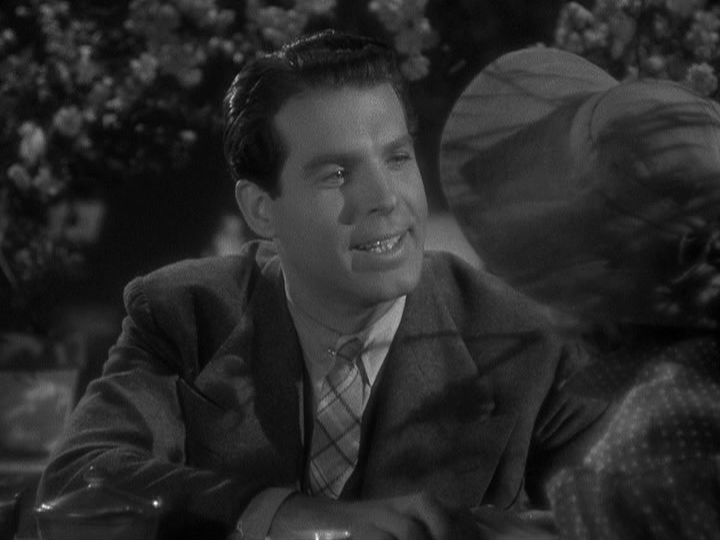
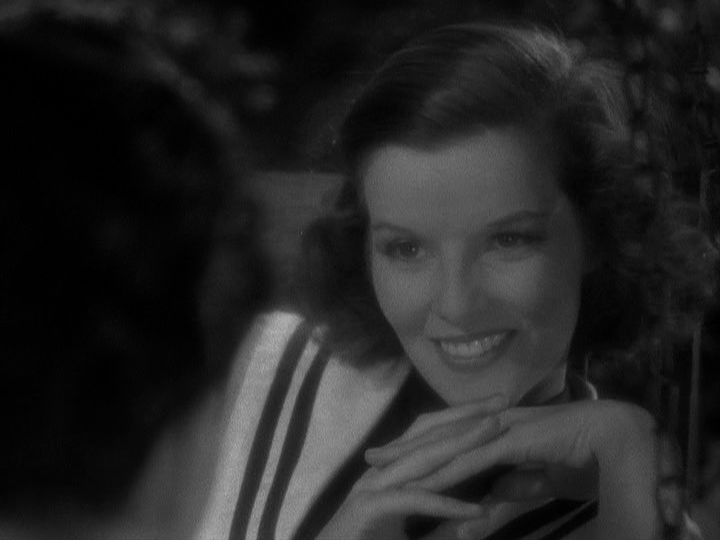
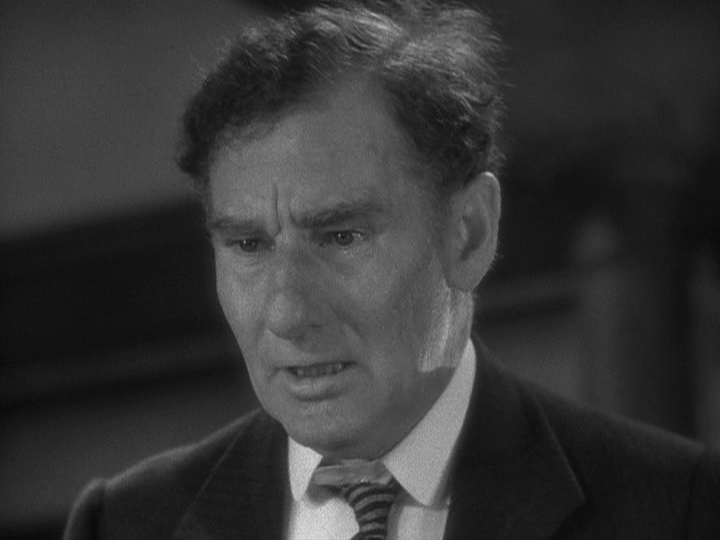
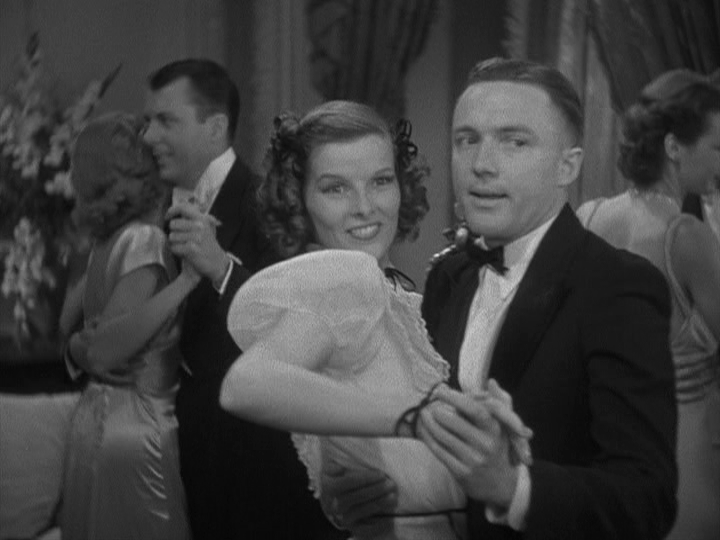
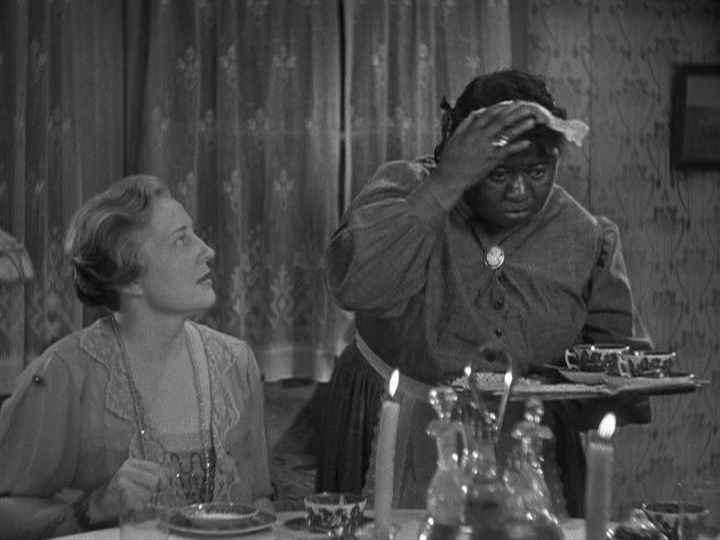
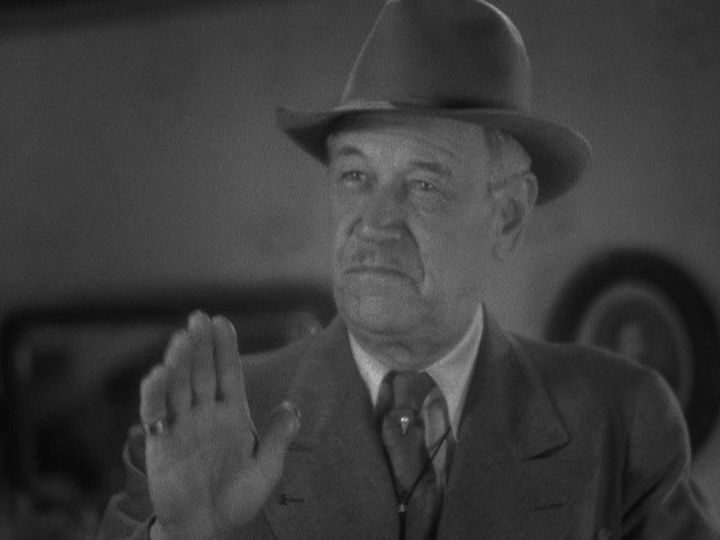

One thought on “Alice Adams (1935)”
First viewing. Not must-see, esp. not for Hepburn’s terrible performance.
In Hepburn’s defense (if necessary), Alice is not, as written, an easy character to play – one would have to mine a lot of subtext in order to (maybe) make the part work. At this point in her early career, ‘subtext’ was a word Hepburn was unfamiliar with; she plays (and often overplays) the role completely on the surface and almost in a complete vacuum.
So much so, for example, that she says things like “cahn’t” and “dahnce” – when no one else in her family talks that way; implying that Alice might be from another family (if not another planet). Hepburn isn’t merely playing Alice as affected; she had a lot of bad habits in her early films and she needed a strong director who would know what to do with her. …That wouldn’t really begin to happen until things like ‘Stage Door’ and, esp., ‘Bringing Up Baby’.
Hepburn’s Alice is, alas, insufferable – a goddamn phony and a constant liar. Who can sympathize with her? She goes to a dance early on – and must be an idiot not to notice that hardly anyone there likes her…yet she’s determined to fit in with a crowd that keeps itself snobbishly above her. What’s wrong with her? Is she just so much of a snob herself that she can’t opt for nicer people?
I could throttle her for her constant nervous laughter alone.
When she says about Arthur, “I don’t know why he likes me…”…well, I believe her! Esp. later, during the dinner scene: she prattles on so in such a bizarre manner, it not only begs patience – it’s easy to think she’s a little insane. She’s *that* self-involved.
As a result, Alice’s ‘big pay-off’ at the end makes no sense. Hepburn has not given her character any kind of arc to play. What should have been at the end of a slow transition to change comes as abruptly as a runaway train; you just can’t buy it.
Meanwhile…nearly everyone else in the cast is giving more realistic performances. (~although, as written, Shoemaker’s Mrs. Adams appears to be the source of Alice’s neurosis and mania; which may be the point of the story but, if so, that goes unexplored.)
I spent most of the film admiring the nuanced work of Albertson as Walter, Stone as Mr. Adams, Grady Sutton as Frank (at the dance) – and even McDaniel, giving us very welcome comic relief.
As a film, though, this is one long haul.